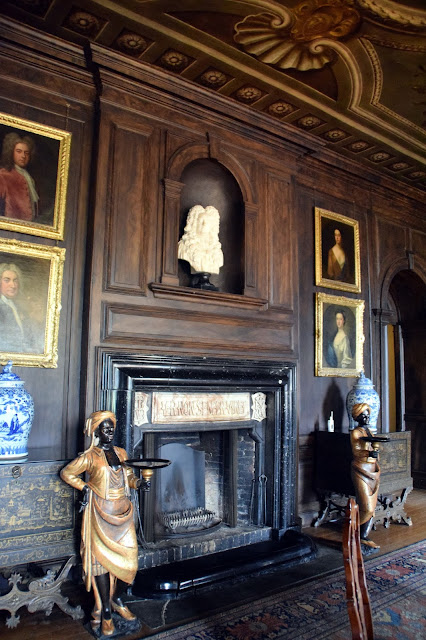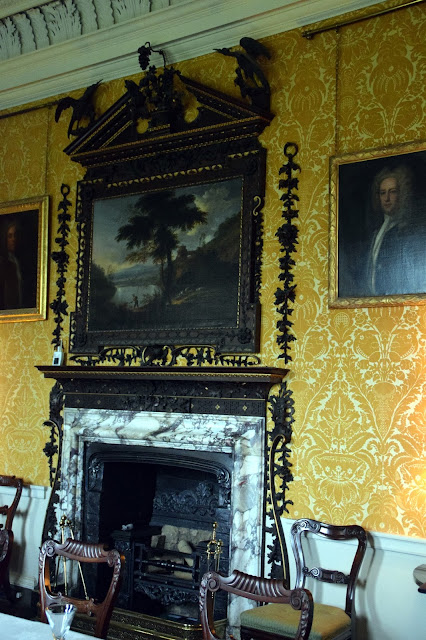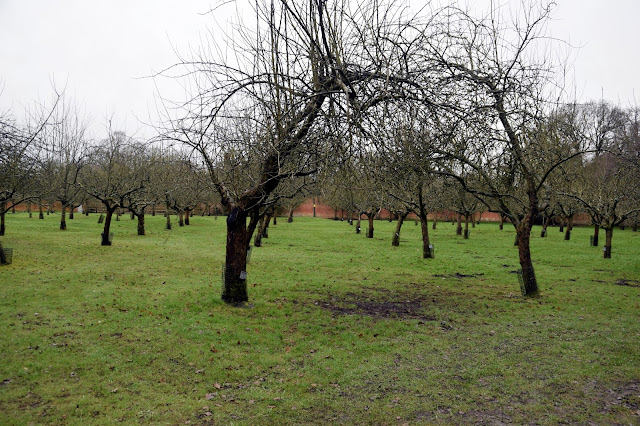From the Norman Conquest onwards, the Hanbury estate was within the
boundaries of the Royal Forest of Feckenham. Feckenham's royal status
was lost in 1629 and local families like the Vernons bought up land to
increase their own estates. The building of the Hall started in 1701 and
was designed, we believe, by William Rudhall.
[ https://www.nationaltrust.org.uk/hanbury-hall-and-gardens]
The lasting legacy of Thomas Vernon (1654–1721) includes the wall and
ceiling paintings that he commissioned Sir James Thornhill to create.
These depict the story of Achilles and, having been recently restored,
are Hanbury's crowning glory.
Oil painting on canvas, Thomas Bowater Vernon (1832-1859) and his
Brother, later Sir Harry Foley Vernon, 1st Bt MP (1834-1920) as
Children, British School, 1836 (previously possibly Henry Weigall
(London 1829 - Ramsgate 1925). Full-length portraits of two young boys,
both turned slightly to the left, the one on the right gazing at the
spectator, both holding a white greyhound which stands between them.
They both have blond hair with ringlets, both are wearing short
off-the-shoulder dresses, the boy on the right in red velvet and the
other in green velvet. On the right is a massive plinth to a fluted
pillar, and on the left is a hoop, two balls and a hat, behind which is a
distant view of trees and sky.
The gardens, commissioned by Thomas Vernon, builder of Hanbury Hall,
were designed and completed in 1701 by George London, in the very formal
style of the time. They included the parterre, fruit garden and
wilderness.


































































No comments:
Post a Comment